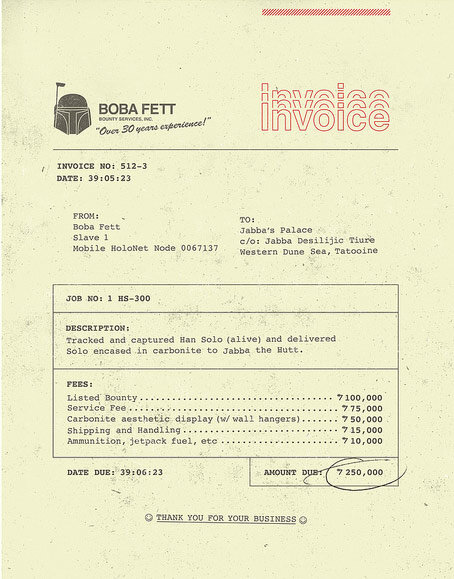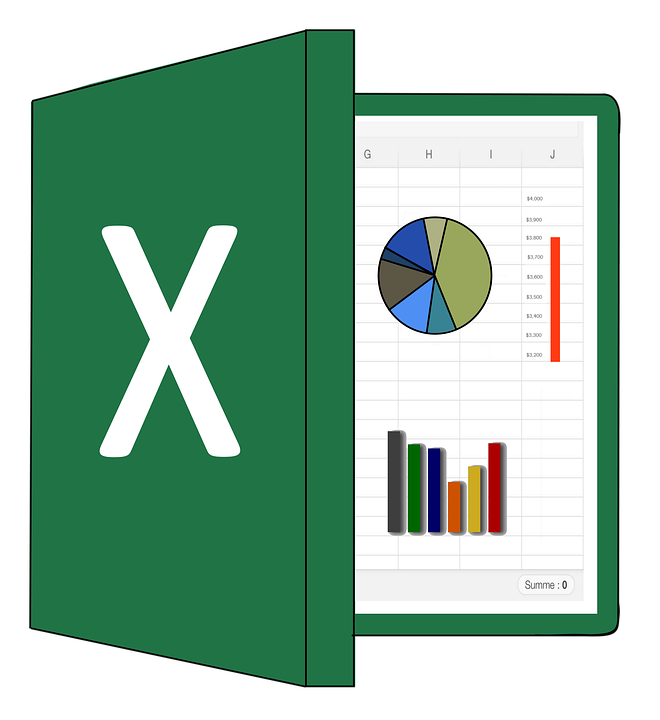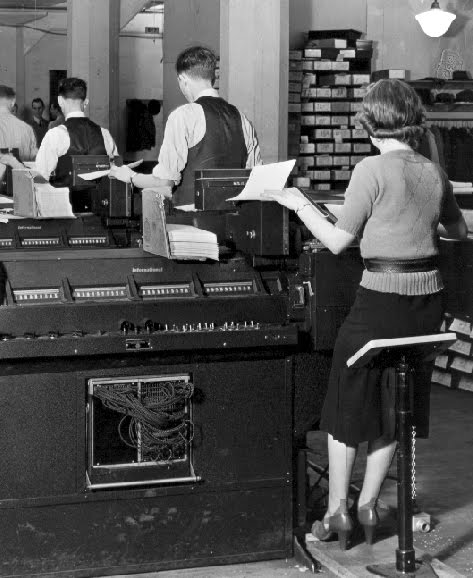
10 Year End Financial and Tax Tips for Your Small Business
As the end of the year approaches, some of us find ourselves overwhelmed by top 10 lists, the shopping masses and endless renditions of Christmas Music. Businesses tend to experience a slowdown, which makes it the perfect time for small business owners to take a closer look at their overall business, financial and tax situation. When you are not buying gifts for your customers, family and friends, a review and analysis of your business will allow you to optimize your current financial situation, implement some beneficial changes that can help avoid last minute tax preparation stress and also prepare for the future.

10 Payment Alternatives to Help Small Businesses Get Paid Faster
One of the numerous ways in which technology has benefitted small businesses has been to increase the number of payment options available. While conventional methods of payment like cash and cheque still exist, there are also a variety of other options like debit cards, internet transfers and mobile payments that have greatly facilitated payment infrastructure and made financial management significantly more flexible. Every business owner must wade through the alternatives and decide what type of payment options are right for their customers. This is based on several factors including their industry, common practices, location and of course business specific considerations. For example, a retailer will usually allow for payment by credit and debit cards, cash and possibly some form of mobile payment. Conversely, a law office may not offer a credit card option, but request payments via cheque or bank transfer.

9 Tips for Building a Sales Forecast
Having a dynamic, regularly updated sales forecast can be essential to the success of a small business. By forecasting your sales revenue you are helping to control for its unpredictability, an inherent risk in any business venture, and prepare for the decisions that are essential to your business profitability. Whether your sales are increasing, decreasing or static, it is always better when decisions are made proactively rather than reactively.
Building your small business sales forecast can be as simple as you want it to be and does not require an accounting degree , particularly when your business is in the early and/or startup stages. Below are some tips to help you create your sales forecast:

Financial Roadmap for Employees Transitioning to Self-Employment
Deciding to transition from being an employee to self-employed business owner/freelancer/independent contractor. can be a significant life event. It can certainly be exciting as you relish the thought of greater freedom, flexibility and the ability to exercise your creativity in ways that you cannot when you are an employee. However, there is also a great deal of uncertainty, both professionally and financially. And while you cannot control the outcome, understanding where the uncertainty might come from will help you be much better prepared.

9 Tips For Managing Your Customer Receivables
Any sales that occur within a business where payment is not made up front (eg. retail) or in advance of the sale (eg. down payment for a car), is reflected as an “Accounts Receivable”, which is accounting terminology for amounts owing by customers to a business. It is good to have accounts receivable, as this means you are generating sales. The downside, however, of having accounts receivable is that it represents cash that you don't have now, and along with that comes the possibility that your customers won’t pay you. Luckily a good system to manage your accounts receivable will help to reduce the number of non paying customers thereby avoiding bad debts. Below are some steps to help manage and collect on your accounts receivable:

Excel for Small Business Owners
As a confirmed excel nerd, there is something about large amounts of data that I am inextricably drawn towards . I suppose it has something to do with an affinity for organization combined with a love of numbers and the innate desire to solve problems. As an accountant and financial consultant , I am often presented with the task of organizing and analysing data into a format that allows for greater insight into my clients businesses . And although good accounting software is important for most small business owners, especially once they reach a certain size, a great deal of analysis and reporting is done most effectively in excel.

13 Ways an Effective Accounting System Can Improve Business Decisions
An accounting system can be an extremely powerful tool for business owners. When structured with the specific needs of the business in mind, it has the power (through the magic of debits and credits) to convert data into a format that tells an interactive, completely personalized story about your business. By providing feedback on how your business is doing it allows you to understand its strengths and weaknesses which ultimately helps you to improve profitability, cash flow and growth of your business.

How to Account for Bad Debts and Record it in Quickbooks Online and Desktop
One of the more unpleasant aspects of being a business owner is having to chase clients that do not pay. It is frustrating, stressful and disheartening, while attempts to collect are an unproductive use of time and can have a significant impact on cash flow, particularly if you are unprepared. A bad debt, in accounting terms, refers to an amount charged to a customer that is never paid. While the original sale would have been reflected as revenue, the uncollectible bad debt would then have to be written off as a separate line item on the profit and loss statement

4 Simple Financial Metrics to Help Measure the Success of Your Small Business
Most small business owners want insights into their business performance to get a sense of what they are doing well while also trying to understand their areas of weakness. Unfortunately a big picture view does not always immediately reveal itself– a thorough understanding of your business generally requires a more thorough analysis and introspection. You may be tempted to look at cash (or lack thereof) in your bank account or your net profit , however these are not always reliable indicators of success or failure , particularly when taken in isolation. Every small business owner should identify the specific needs and constraints of their business to determine the optimal analysis required to assess its financial performance. Some general analysis that most businesses can benefit from are presented below:

What is your Net Worth?
There comes a point in many people's lives when they want to find out what they are worth. This is much more difficult to quantify on a metaphysical level; however on a tangible level most people can figure out how much wealth they have created over time. The definition of net worth is simply the total of all your assets (what you own) less your liabilities (what you owe).

How to Prepare a Business Budget
One of the primary challenges facing a small business owner is uncertainty about the future. (It is also what makes entrepreneurship exciting). We may have an amazing product or service, but we can’t be sure whether this will actually translate into a profitable business model. A budget is an excellent tool to manage uncertainty and, contrary to popular belief, can actually be fairly straightforward to prepare, particularly for small businesses that do not have to worry about different departments, product lines and geographic areas .
A budget, very simply, is a tool that helps you predict your sales, expenses and profitability as well as your cash flow needs. It is based on estimates, which in turn are based on a combination of experience, history and industry knowledge. In terms of presentation, a budget should essentially mirror your financial statements and will include the following main categories:

Accounting for Non Accountants : Debit, Credits and Financial Statements
When people hear the term accounting, there is an involuntary reaction whereby the comprehension centres (the medical term) of their brains tend to shut down, and sleep mode is activated. This is unfortunate, as accounting, especially to a small business owner, can actually be quite interesting. It is one of the primary tools by which business owners and other interested parties can gage the success of their business, as well as identify areas that require attention andneed improvement. To understand accounting, business owners need to have a basic understanding of how it works (debits and credits) and it's results (financial statements), explained below:

4 Metrics to Help Improve Your Small Business Cash Flow
n a recent study by TD Bank Financial Group it was determined that one of the primary challenges facing small business was cash flow (The other two were managing clients and government red tape). This probably comes as no surprise to most small business owners, especially in the early stages. The simple answer to this problem would be a limitless source of cash. Since this is usually not possible, we need to do the next best thing: analyze our cash flow requirements and find the most cost effective and easily available solution for any shortfalls. Even the most successful business can find itself shutting its doors if it is not able to manage it's cash flow needs.
Below are 4 financial metrics, which if understood and monitored regularly, can actually help improve your business' cash flow:
Small Business Survival Statistics and 9 Steps to Improve Your Chances of Sticking Around
The temptation to start a small business or venture into self employment can be strong particularly for those who are unhappy with their existing employment situation. The freedom and flexibility that being your own boss seems to offer can be seductive, as is the potential for growth which you, as the business owner, can have full control over. You may have an idea or a particular skill that you believe is desirable to a specific target market and you are confident that once this target market is aware of your existence they will all be banging down your door. Consequently, you start your business by offering an amazing product or services, only to realize that building up a customer base is more challenging than you thought. Additionally, there are a number of other obstacles for which you do not have the expertise (done by another department when you were an employee) whether it is marketing, website development, legal research and accounting. Finally, you realize that you actually need a fairly sizable source of cash to maintain the business, deal with growth opportunities, whilst ensuring that you are able to support yourself.
